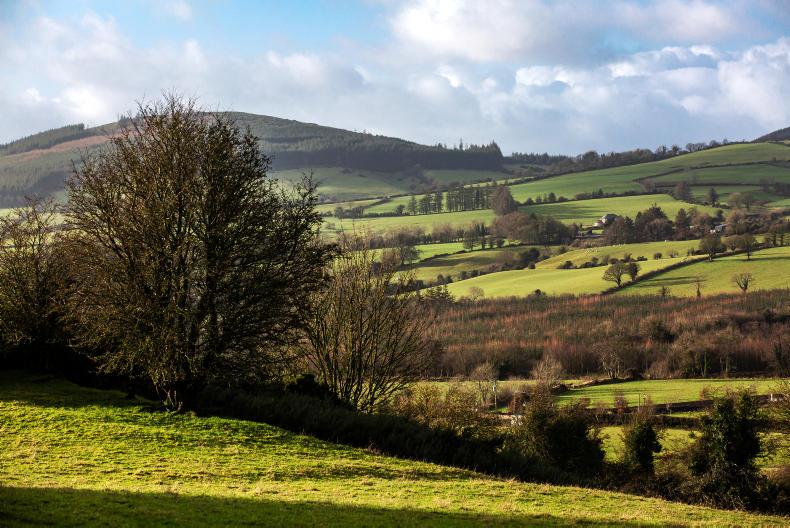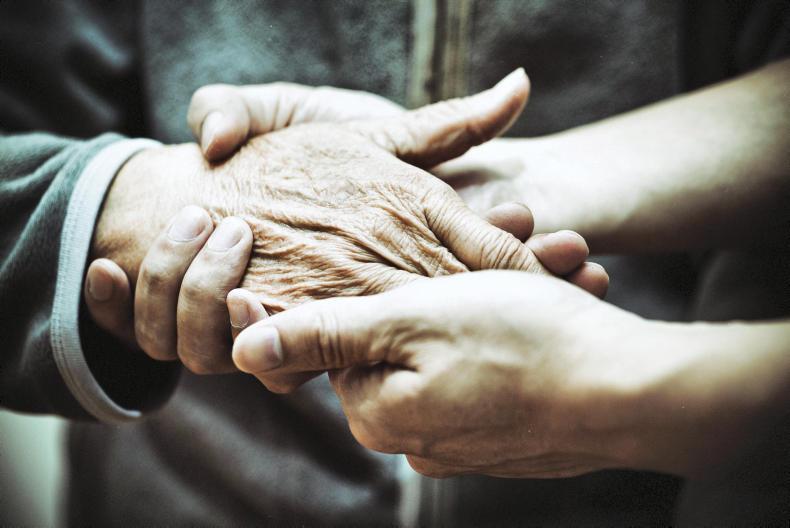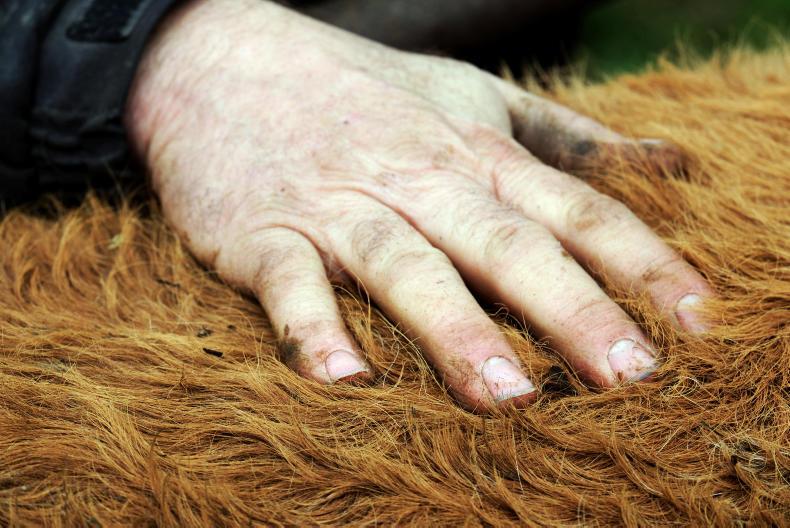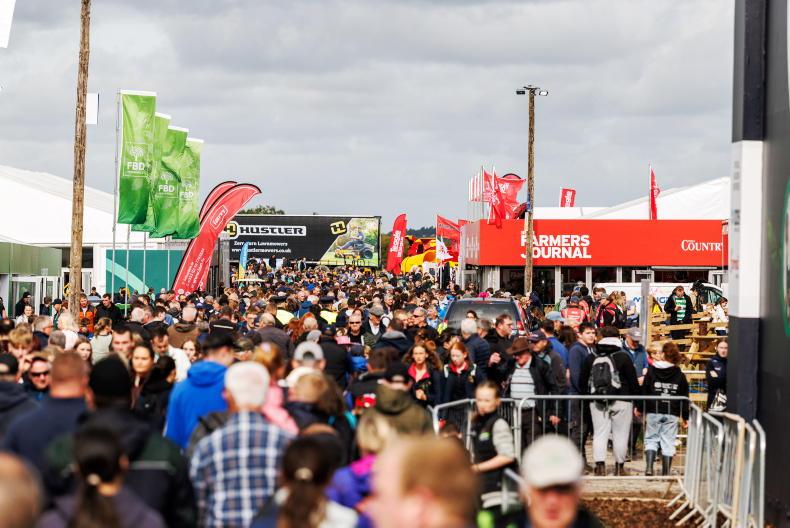As a farmer’s wife, I know we farmers are no strangers to change in our work practice.
For us, there is a constant need to make decisions about new challenges – coming up with imaginative and individual solutions is what we do everyday.
We are faced with ever-changing external factors that we have little control over – weather, climate, changing eating habits and thus change in demand for produce, new regulations and, now, the coronavirus.
Working alone will not solve this Mount Everest challenge, we must work together.
Infection
COVID-19 is a highly contagious infection caused by the SARS covid-2, a novel virus. There is no vaccine or cure, at this time.
The vast majority of infected people will have mild to moderate symptoms and will be treated at home; others will require hospitalisation and some of us will be admitted for intensive care.
There will be a significant increase in the death rate associated with this viral infection; people of all ages are at risk, but older people particularly so - our parents, grandparents and elderly neighbours.
Isolation and quarantine
If you are infected or if you have been in contact with someone who is infected you must self-isolate or quarantine.
Why isolation? Because the infection is highly contagious – the coronavirus spreads by droplet.
When we sneeze or cough, we generate droplets in the air, the virus gets on our hands and surfaces around us – hence the constant and exhausting need to hand wash and wipe surfaces.
We must act as if we are infected by the coronavirus, and as if everyone around us is too – only then will we reduce the spread and the impact of this devastating virus.
We must consider the consequence to almost every move.
We will get tired. Emergency Government legislation has granted powers to the gardaí to police restrictions on any movements.
But we have overcome challenges on our farms before and we will overcome this one – many of us can bring to mind Ireland’s experience of BSE, foot and mouth and swine flu.
The Department of Agriculture, Food and the Marine is working closely with the Department of Health and with other Government departments, as part of a whole-of-Government response to COVID-19 – so that producers and processors can continue to operate effectively and keep supply lines open.

Tough decisions
The HSE and Department of Agriculture will be issuing tough advice which they have arrived at after getting expert opinion and deliberation. It may not always make sense and it will be hard to follow, but follow it we must – to get out the other end.
There is no way to sugar coat this. We should be frightened but not paralysed – we will get through this if we follow the HSE and Department of Agriculture advice.
Deviation from the directives or going it alone will have detrimental outcomes. We have to trust the Government this time and believe that they know best.
As a group, we farmers often find it hard to accept or agree with Government decisions – this time we have no choice.
Working together, solidarity and cohesion will give us the strength and resilience to make the outcome better.
Think about and find the answer to these questions so that you are prepared.
What will you do when you, someone in your household or someone you have been in contact with gets the coronavirus? What will you do when you have to self-isolate? How will you get animal feed? Who will feed your animals on the farm or at the outside farm? Where and how will you sell your animals? Will the vet come out to your farm? How will you cope with self-isolation? Who will deliver food to your house? To whose house will you deliver food? Which neighbours will you help when they are unable to and who will help you? What goods (feed, chemicals, fertiliser, etc) do you rely on to keep your business going in the coming three to four months - contact suppliers to secure goods or source alternatives. Get solutions to these questions now.

Set aside differences
This is a time to set aside personal differences and old grievances. Now is the time to approach your neighbours, make plans, get someone who is familiar with the systems on your farm.
Where is the feed, what is the daily routine, which cattle are ready for selling or ready to calve, what is the milking routine?
How can it be changed if there are fewer hands to do the work the way you have always done it?
Form buddy systems and get ready. For some of us that will be hard – to do this we may have to set aside old scores and that fierce Bull McCabe pride displayed in the The Field.
It will be too late when your neighbour is in hospital and his cattle need fed and you have to rise to the mark. It will be too late when you are in hospital.
Stick together, buddy up and you will get through this. I will get through it. We will get through.
Read more
Coronavirus: farmers urged to prepare a plan B in case they fall sick
As a farmer’s wife, I know we farmers are no strangers to change in our work practice.
For us, there is a constant need to make decisions about new challenges – coming up with imaginative and individual solutions is what we do everyday.
We are faced with ever-changing external factors that we have little control over – weather, climate, changing eating habits and thus change in demand for produce, new regulations and, now, the coronavirus.
Working alone will not solve this Mount Everest challenge, we must work together.
Infection
COVID-19 is a highly contagious infection caused by the SARS covid-2, a novel virus. There is no vaccine or cure, at this time.
The vast majority of infected people will have mild to moderate symptoms and will be treated at home; others will require hospitalisation and some of us will be admitted for intensive care.
There will be a significant increase in the death rate associated with this viral infection; people of all ages are at risk, but older people particularly so - our parents, grandparents and elderly neighbours.
Isolation and quarantine
If you are infected or if you have been in contact with someone who is infected you must self-isolate or quarantine.
Why isolation? Because the infection is highly contagious – the coronavirus spreads by droplet.
When we sneeze or cough, we generate droplets in the air, the virus gets on our hands and surfaces around us – hence the constant and exhausting need to hand wash and wipe surfaces.
We must act as if we are infected by the coronavirus, and as if everyone around us is too – only then will we reduce the spread and the impact of this devastating virus.
We must consider the consequence to almost every move.
We will get tired. Emergency Government legislation has granted powers to the gardaí to police restrictions on any movements.
But we have overcome challenges on our farms before and we will overcome this one – many of us can bring to mind Ireland’s experience of BSE, foot and mouth and swine flu.
The Department of Agriculture, Food and the Marine is working closely with the Department of Health and with other Government departments, as part of a whole-of-Government response to COVID-19 – so that producers and processors can continue to operate effectively and keep supply lines open.

Tough decisions
The HSE and Department of Agriculture will be issuing tough advice which they have arrived at after getting expert opinion and deliberation. It may not always make sense and it will be hard to follow, but follow it we must – to get out the other end.
There is no way to sugar coat this. We should be frightened but not paralysed – we will get through this if we follow the HSE and Department of Agriculture advice.
Deviation from the directives or going it alone will have detrimental outcomes. We have to trust the Government this time and believe that they know best.
As a group, we farmers often find it hard to accept or agree with Government decisions – this time we have no choice.
Working together, solidarity and cohesion will give us the strength and resilience to make the outcome better.
Think about and find the answer to these questions so that you are prepared.
What will you do when you, someone in your household or someone you have been in contact with gets the coronavirus? What will you do when you have to self-isolate? How will you get animal feed? Who will feed your animals on the farm or at the outside farm? Where and how will you sell your animals? Will the vet come out to your farm? How will you cope with self-isolation? Who will deliver food to your house? To whose house will you deliver food? Which neighbours will you help when they are unable to and who will help you? What goods (feed, chemicals, fertiliser, etc) do you rely on to keep your business going in the coming three to four months - contact suppliers to secure goods or source alternatives. Get solutions to these questions now.

Set aside differences
This is a time to set aside personal differences and old grievances. Now is the time to approach your neighbours, make plans, get someone who is familiar with the systems on your farm.
Where is the feed, what is the daily routine, which cattle are ready for selling or ready to calve, what is the milking routine?
How can it be changed if there are fewer hands to do the work the way you have always done it?
Form buddy systems and get ready. For some of us that will be hard – to do this we may have to set aside old scores and that fierce Bull McCabe pride displayed in the The Field.
It will be too late when your neighbour is in hospital and his cattle need fed and you have to rise to the mark. It will be too late when you are in hospital.
Stick together, buddy up and you will get through this. I will get through it. We will get through.
Read more
Coronavirus: farmers urged to prepare a plan B in case they fall sick











SHARING OPTIONS